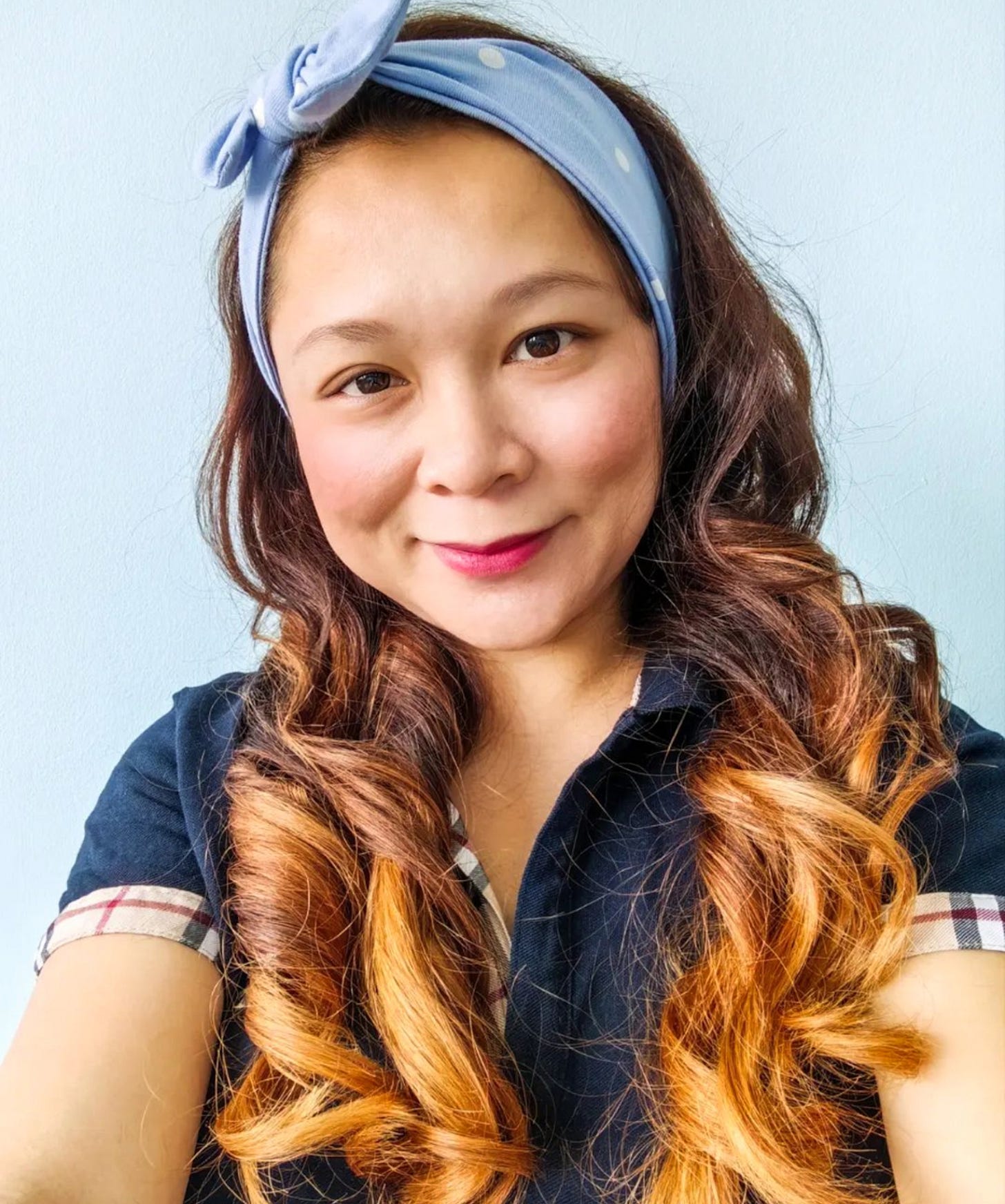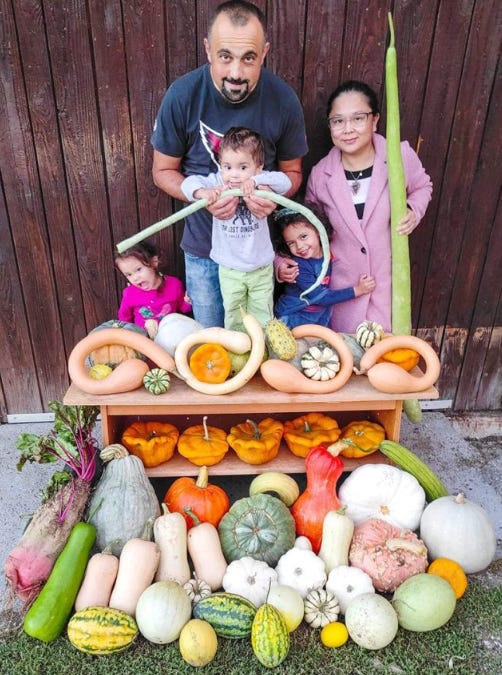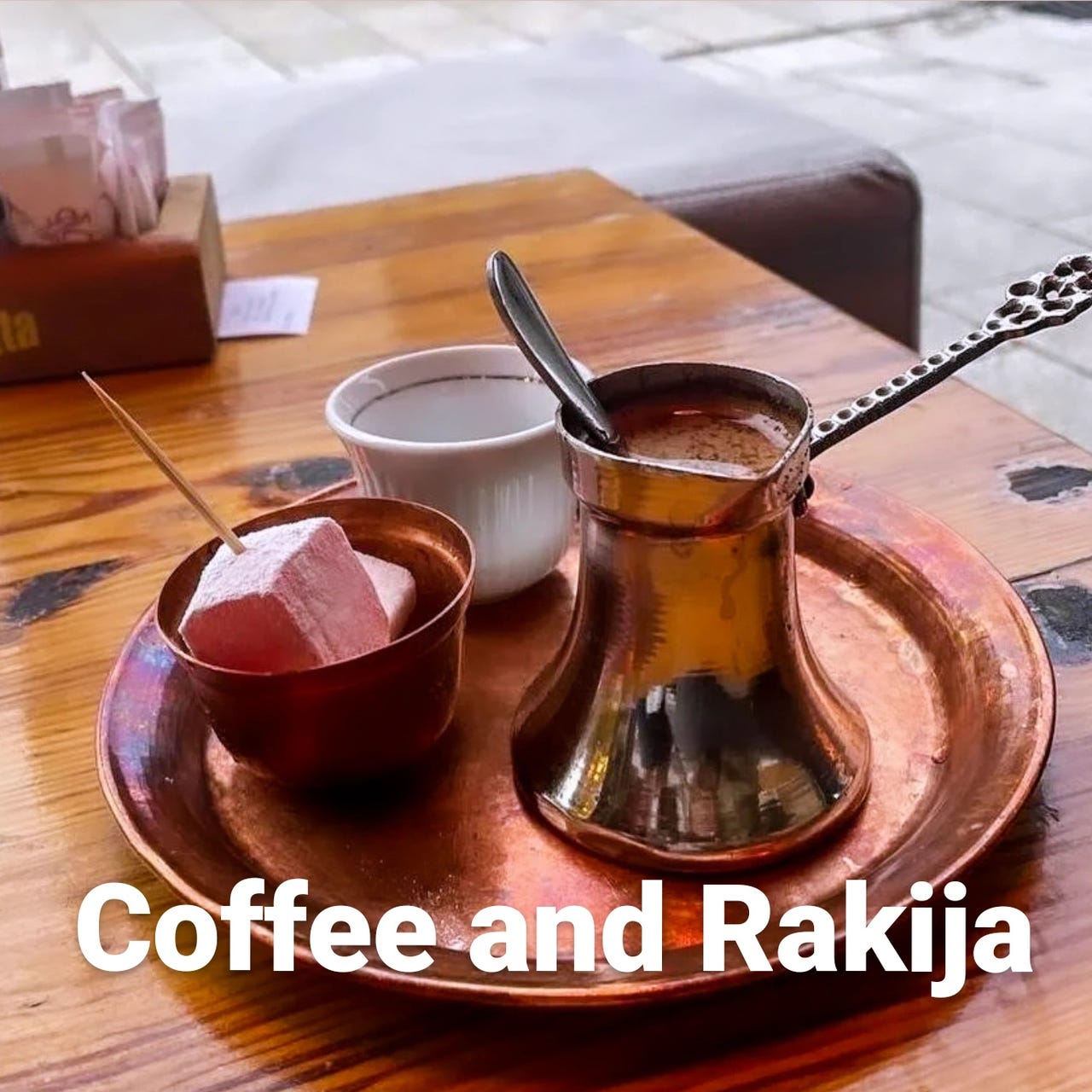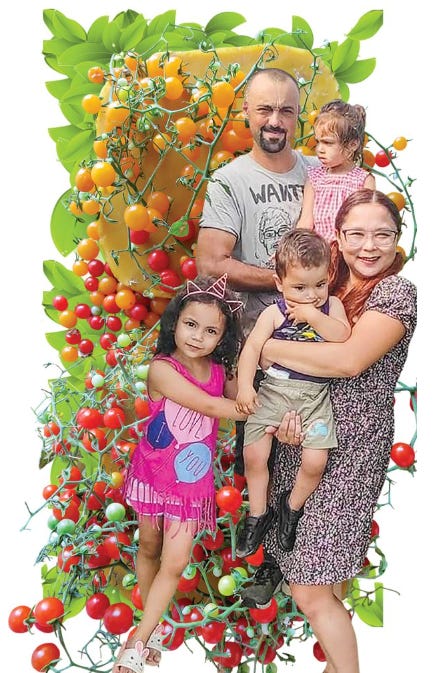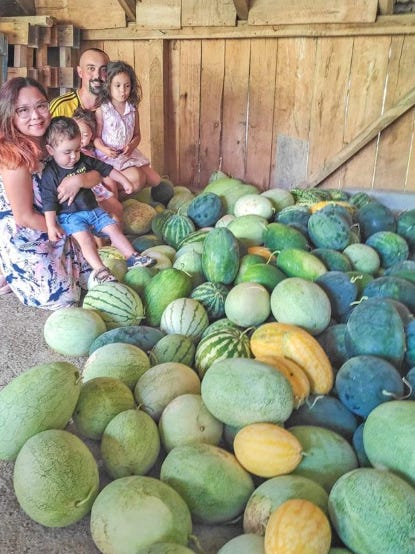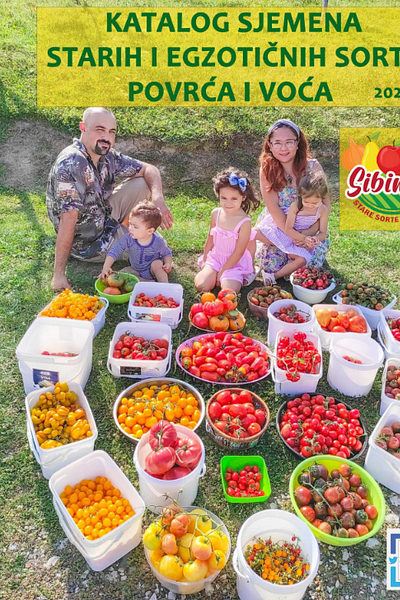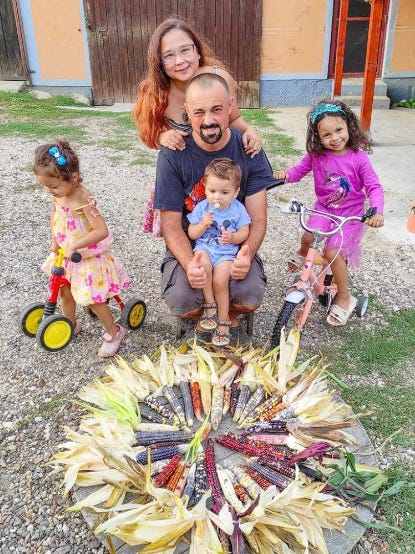The Sibinčić Family
Introducing Our New Contributor for Sustainable Living in Bosnia and Herzegovina
For some time now, I have wanted to highlight how sustainable living is promoted in Bosnia and Herzegovina.
To be honest, as an individual I support this very much, but I personally have zero clue about how to implement this important task.
So I am over excited to let you know that one of the country’s leading advocates, Ivy Sibinčić, will be joining me as a contributor, writing a monthly post here on Coffee and Rakija.
Meet Ivy Sibinčić
Ivy is a member of the Sibinčić Family, a delightful blend of Bosnian-Serb and Filipino heritage, embodying cross-cultural magic that infuses their content. Alongside her husband, Slaven, and their four beautiful children, Sofija, Natalija, Gabrijel and Nikolaj, together they share family adventures, culinary experiments, and heartwarming moments from their rural village in North-West Bosnia and Herzegovina.
Donji Smrtići - 2022
The Sibinčić Family
They're anything but the average rural family. Not only for the love story of a Filipino woman and a Bosnian Serb, but also for the varieties of fruits and vegetables that they grow and whose seeds they keep.
They met in 2017 when they were both working on transatlantic ships and, after the end of their contract, decided to leave that life and start starting a family and project from which they can live.
The village of Donji Smrtići, is Slaven's birthplace, and to which Ivy, his came without thinking and decided to grow her Asian fruit, which would remind her of her homeland and bring the smells and tastes of the Philippines to Bosnia and Herzegovina.
Ivy talking to me back in 2021 when we first met ⬇️.
Ivy is a journalist, and I am an agricultural engineer, and it was logical for me to start an estate in the countryside, and she started to share it all on social networks and our you tube channel. This was interesting to people, seeing as we grow some various old and exotic varieties, says Slaven.
It was difficult for her at the beginning, because everything here is completely different, from climate to food, but she had a lot of support from both me and my family. With this support, she easily learned the Serbian language.
Ivy didn't let go of nostalgia. On the estate she started planting Filipino varieties of fruit, continues Slaven.
First we planted Filipino varieties, such as bitter melon, pakcoj (Bok choy, pak choi or pok choi), and the like, because she didn’t have this and could not prepare her dishes without her vegetables. Currently, our seed bank has about 650 varieties from all over the world, some of which we sell if there is excess. We've been working on it for 5 years now, first as a hobby, and now as a small business whose small income we use to get new varieties and invest in agriculture.
Slaven points out that Sibinčići (The Sibinčić’s) differ from other farmers in that they plant everything from seeds and grow organically.
Cultivation is organic from seed to fruit, which is rare in our country, (Bosnia and Herzegovina), because people mostly do not have their own seeds and seedlings. Also, we want to inspire and encourage others to establish their gardens, and every year we distribute free seeds and we have received awards for that.
Some of these seeds, however, stand out and are interesting, and will enter the local market.
We have about 130 varieties of tomatoes and we are currently focused on three varieties that have proven to be resistant and interesting to produce: travel tomatoes, black apple tomatoes and chocolate pear. By breeding them, we will try to find a place in the market. The rule is that every variety, when we get it, we try to grow it with us before we sell the seeds, to make sure that it can be grown with us.
Most varieties have grown successfully. We have fertile soil, which is one of the most important resources of our country. For some seed varieties, we have to wait two or three years, because due to sunny days it fails to give seeds in one season.
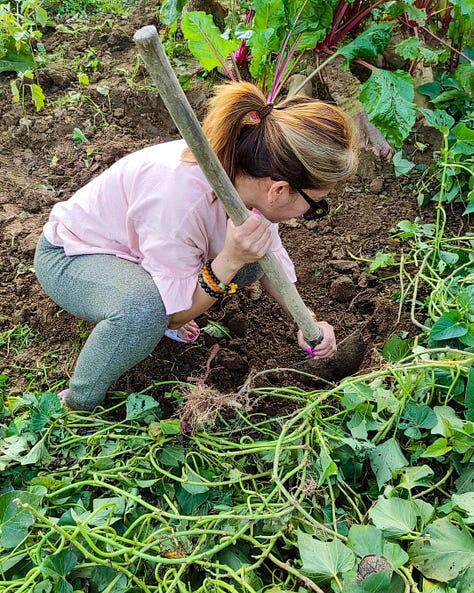
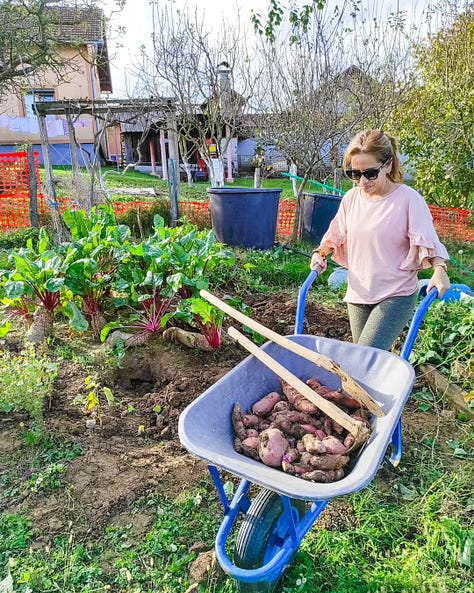
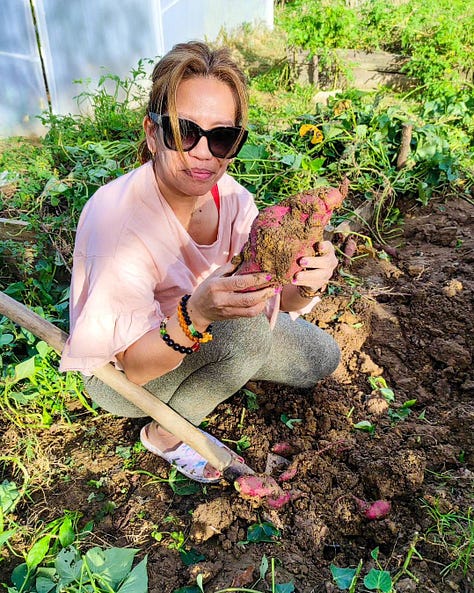
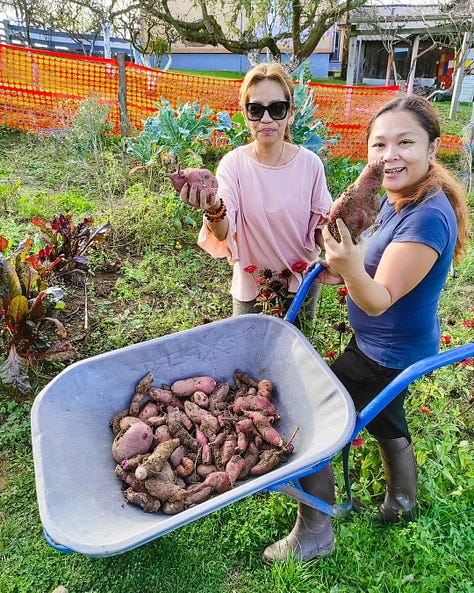
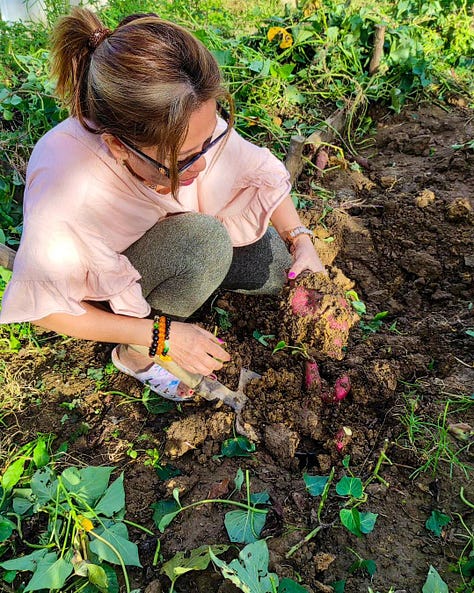
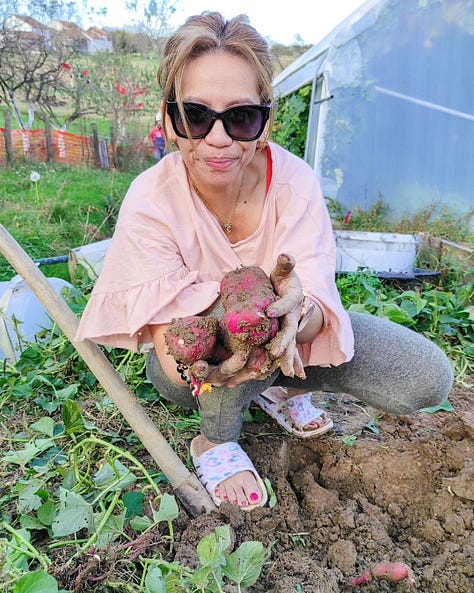
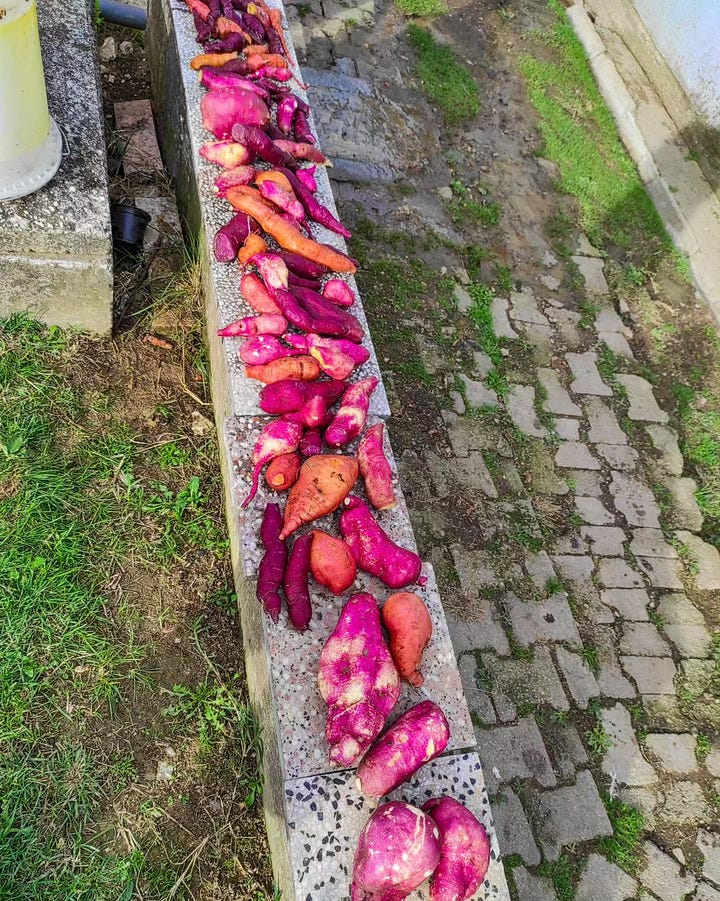
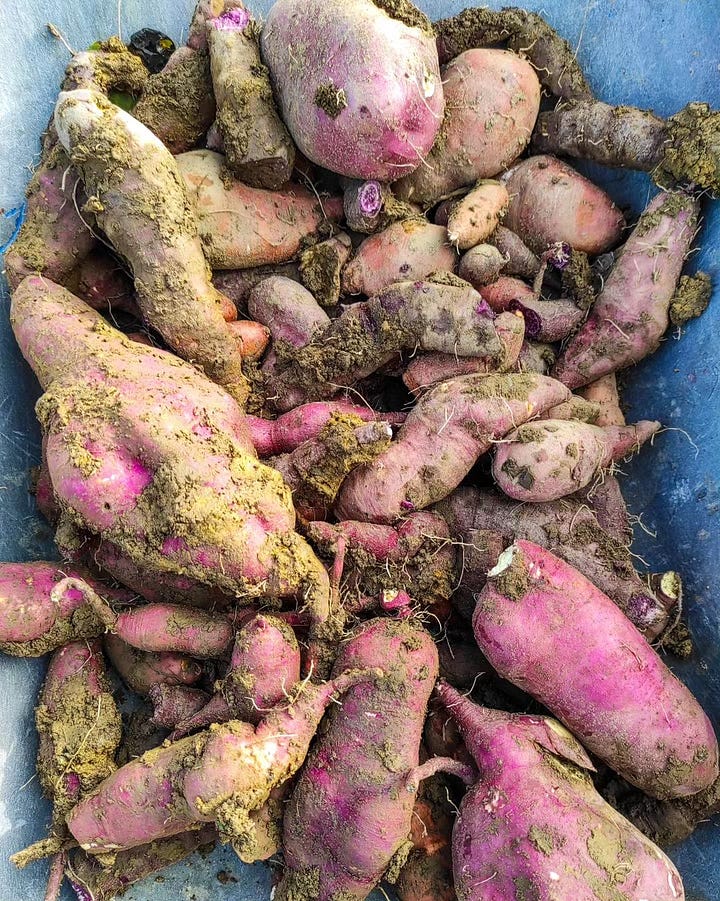
What is like to grow this large variety of species and varieties?
Old varieties are not demanding and are mostly easy to grow. They do not give much fruit as hybrids, but the quality of the product is up to ten times higher, so it comes to the same. When you eat one of our tomatoes, it's like eating ten hybrid ones, and you have taste, look, and smell. We think that old varieties are the future of agriculture.
Get The Sibinčić 2024 Catalogue (Serbian)
Slaven and Ivy are the proud owners of the oldest beans in the world.
We have established cooperation with the most famous American company for old varieties in the world, Baker Creek, and from them we have received many rare and interesting varieties, including the oldest beans that were found in an archaeological site and dates back to 1,500 years ago. This year we grew it for the first time and with us it thrives without problems and is very resistant. There are more and more young people who start and have their own gardens and our varieties are very interesting to them and because they are resistant, they are very easy to grow and do not require chemistry and artificial fertilisers. You can grow a quality and healthy product and store seeds for many years.
The work of the Sibinčić family has not gone unnoticed by the Ministry of Agriculture of Bosnia and Herzegovina.
Last year I received funds from the Ministry of Agriculture for self-employment, and now, in addition to seeds, we are starting beekeeping, and growing tomatoes and watermelons more seriously. Last year we planted smaller areas, the market responded well to our old varieties and we were able to achieve a good price of the product.
We had no competition and the old varieties proved to be profitable despite lower yields. They have less work and costs than hybrids, and we had the support of the municipality, as well as the Genetic Institute of the Republic of Srpska.
We are planning projects for the preservation of old varieties with them, and we also had a visit of students and professors from the Faculty of Agriculture.
Last year, for the first time, we participated in a fair organised by the Faculty of Agriculture.
The response of people was excellent and we have made many contacts for our business in the future says Slaven.
All Sibinčići products are without fertilisers, pesticides or chemicals.
Everything natural and organic from seed , says Slaven, because we believe that hybrids are nothing more than a means for companies to sell seeds, chemistry and fertilisers. Everything is designed to control an important strategic factor of food, and therefore to control people.
In our country, cultures intertwine, not only Filipino and Serbian, but we constantly have people of different cultures visiting, and we always look to take the best from others and adapt to ourselves.
And Finally
📈 The Survey 📊
I have a short survey designed to improve my Substack. It would be super helpful if you could find under 5 minutes to complete it.
Don’t forget that you can read back editions of the newsletter, listen to previous podcasts (we have quite an archive now), or catch other content, all this is available on the web interface, just like a regular blog.
Oh, and please share the newsletter with friends, relatives and colleagues using the button below.
Tamara and I appreciate your faithful readership, your comments, and your generosity!
Until our next post.
THANKS SO MUCH ❤️




